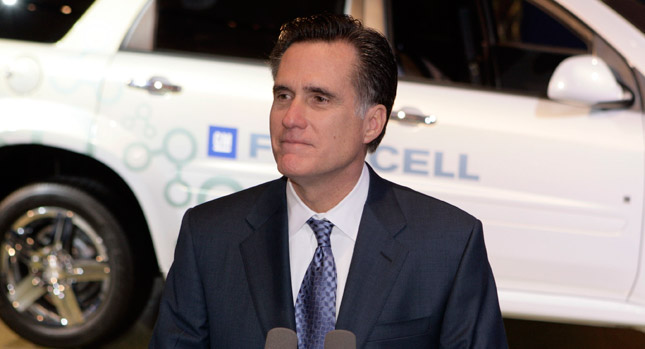The automotive industry is once again involved in politics and more specifically, this year’s presidential elections. This time it’s Republican candidate former Massachusetts Governor, Mitt Romney, who attacked President Barack Obama’s handling of the 2009 bailout.
In an op-ed published today at the Detroit News, Romney criticizes Obama of “instead of doing the right thing and standing up to union bosses, he rewarded them”.
Romney stated that the companies should have entered and then exited bankruptcy, but that “by the spring of 2009, instead of the free market doing what it does best, we got a major taste of crony capitalism, Obama-style.”
This is a free country and everyone is entitled to his opinion. However, calling yourself “a son of Detroit” who “grew up drinking Vernors and watching ballgames at Michigan & Trumbull” right before Michigan’s primary elections that will take place on February 29, is more of a matter of timing than just protesting about how the U.S. taxpayers’ money are spent.
Moreover, it comes only four days after former (Republican, lest we forget) President’s George W. Bush, who initiated the bailout, said that he’d do it again if he had to.
In all fairness, it’s not the first time that Romney has openly said that a managed bankruptcy was the right course of action for GM and Chrysler. He said the same thing three years ago in another op-ed, for the New York Times, arguing “in a managed bankruptcy, the federal government would propel newly competitive and viable automakers rather than seal their fate with a bailout check.”
Democratic Lansing political analyst Mark Grebner responded by accusing Romney that his message isn’t genuine: “Now he’s from Michigan? He has, what, four home states?” asked Grebner. “He just gets to be anybody he wants to be. Now he’s the great captain of industry explaining how capitalism works.”
Grebner added that he is not surprised by the attack as in the presidential primaries, the gloves are off. If he is nominated, though, he expects Romney to adopt a more lenient stance towards the unions.




